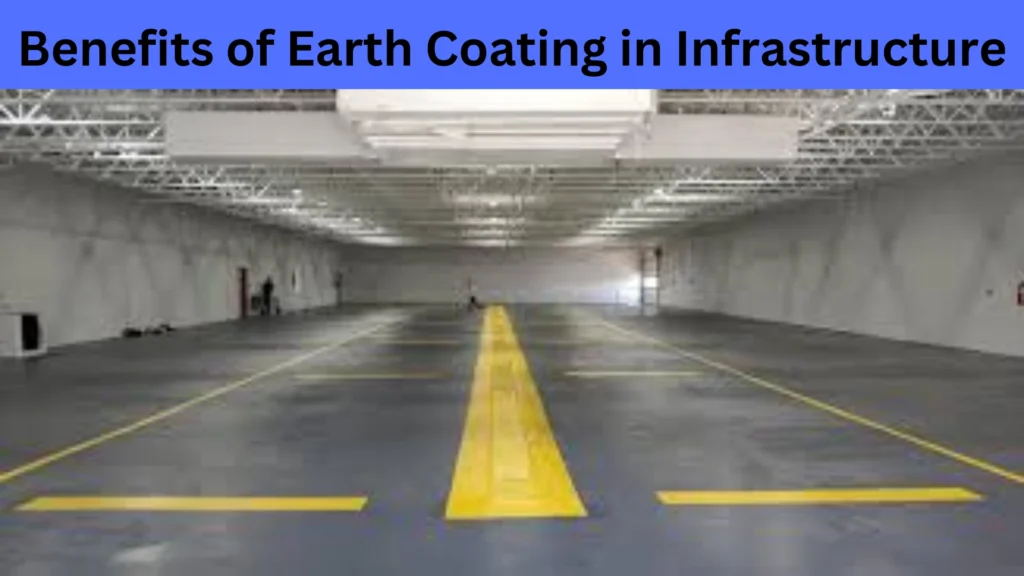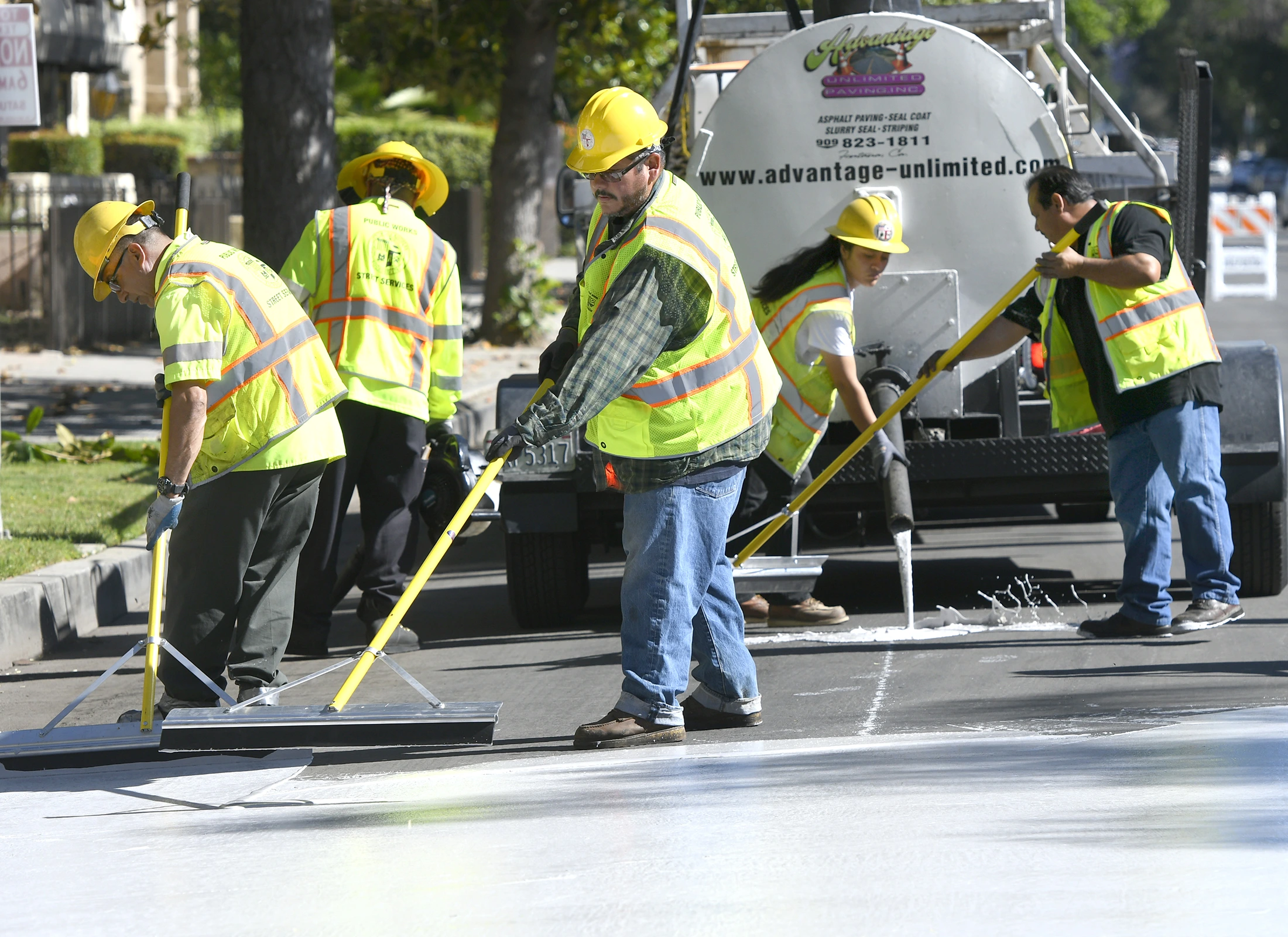Introduction To Earth Coating Coated Infrastructure
In modern construction and infrastructure development, durability and sustainability are key concerns. One innovative solution gaining traction is Earth Coating Coated Infrastructure—a technology that enhances structural longevity while minimizing environmental impact. This coating method provides superior protection against corrosion, extreme weather, and environmental wear and tear, making it a preferred choice for various industries.
In this blog, we will explore what Earth Coating is, its benefits, its applications, and why it’s transforming infrastructure durability worldwide.
What Is Earth Coating?
Earth coating is an eco-friendly protective layer applied to infrastructure components such as pipelines, bridges, roads, and buildings. It is designed to offer superior resistance to corrosion, UV damage, and environmental degradation while maintaining sustainability.
Key Characteristics of Earth Coating(Earth Coating Coated Infrastructure):
> Eco-Friendly Composition: Made from natural minerals, bio-based materials, or recycled substances.
> High Durability: Resistant to rust, chemical exposure, and mechanical stress.
>Sustainable Performance: Reduces maintenance costs and extends infrastructure life.
>Weather Resilience: Provides a shield against extreme heat, cold, and moisture.
This innovative coating method is rapidly replacing traditional materials like petroleum-based paints and chemical coatings due to its environmental benefits and long-term cost savings.
The Growing Need for Coated Infrastructure
Modern infrastructure faces constant exposure to natural and industrial threats, including:
>Corrosion from moisture and chemicals
>UV damage and oxidation
>Extreme temperature variations
>Abrasion from heavy traffic and mechanical wear
Earth Coating helps mitigate these risks, ensuring that bridges, pipelines, and buildings remain functional for extended periods with minimal maintenance.
Industries That Benefit from Earth Coating(Earth Coating Coated Infrastructure):
>Construction: Strengthens roads, bridges, and buildings against environmental stressors.
>Oil & Gas: Protects pipelines from corrosion and leaks.
>Renewable Energy: Enhances the durability of solar panels and wind turbines.
>Transportation: Extends the lifespan of highways, railways, and airports.
Benefits of Earth Coating in Infrastructure
The advantages of Earth Coating extend beyond protection and longevity—it also provides sustainability, cost efficiency, and improved performance.

Environmental Benefits
>Low Carbon Footprint: Uses natural and recycled materials, reducing harmful emissions.
>Non-Toxic & Safe: Free from hazardous chemicals like lead and volatile organic compounds (VOCs).
> Energy Efficient: Reflective coatings help regulate temperatures, lowering energy consumption.
Cost-Effectiveness
> Reduces Maintenance Costs: Extends the lifespan of structures, reducing the need for frequent repairs.
> Prevents Infrastructure Failures: Minimizes risks associated with corrosion and structural degradation.
>Long-Term Investment: Enhances property value by increasing durability.
Performance & Durability
> Withstands Harsh Conditions: Resistant to saltwater, UV rays, and extreme temperatures.
> Improves Surface Strength: Reduces wear and tear from friction and heavy loads.
> Adapts to Multiple Surfaces: Can be applied to metal, concrete, wood, and composites.
These benefits make Earth Coating a game-changer for industries looking to balance sustainability, durability, and affordability.
Types of Earth Coating for Infrastructure(Earth Coating Coated Infrastructure)
There are different types of Earth Coatings, each designed to serve specific purposes.
Mineral-Based Coatings
>Made from natural minerals like silica and clay
>Highly resistant to corrosion
>Used in bridges, roads, and concrete structures
Bio-Based Coatings
>Composed of plant-based resins and natural oils
>Non-toxic and biodegradable
>Applied in interior and exterior infrastructure
Ceramic Earth Coatings
>Contains microscopic ceramic particles for thermal resistance
>Reduces heat absorption in buildings and roads
>Ideal for hot climate areas
Recycled Polymer Coatings
>Made from recycled plastics and industrial waste
>Provides strong adhesion and chemical resistance
>Used in pipelines and industrial storage tanks
Each type offers unique advantages, allowing industries to choose the best option for their specific needs.
Applications of Earth Coating in Modern Infrastructure (Earth Coating Coated Infrastructure)
Earth Coating is revolutionizing various sectors by enhancing structural resilience and sustainability.
Bridges and Highways
>Protects against water damage, salt exposure, and corrosion
>Increases the lifespan of concrete and steel structures
>Reduces the need for frequent road repairs
Underground Pipelines
>Prevents leakages and rust formation
>Improves flow efficiency by reducing friction
>Ensures safe transportation of oil, gas, and water
Buildings & Urban Development
>Provides fire resistance and thermal insulation
>Enhances aesthetic appeal with eco-friendly paints
>Supports LEED-certified sustainable construction
Renewable Energy Infrastructure
>Protects solar panels from UV radiation and weathering
>Reduces corrosion in wind turbine components
>Increases efficiency and longevity of green energy systems
These applications highlight how Earth Coating is reshaping the future of infrastructure.
Future of Earth Coating Coated Infrastructure
As industries shift towards sustainable construction materials, the demand for Earth Coating is expected to grow. Innovations in nanotechnology, bio-based solutions, and AI-driven coating techniques will further improve efficiency and durability.
What’s Next?
> Smart Coatings: Self-healing materials that repair minor damages automatically.
> AI-Powered Monitoring: Sensors embedded in coatings for real-time infrastructure analysis.
>Increased Adoption: Governments and industries implementing green infrastructure policies.
With continuous advancements, Earth Coating is set to redefine how we build and maintain infrastructure worldwide.
Verdict in Brief(Earth Coating Coated Infrastructure)
Earth Coating Coated Infrastructure is an innovative, eco-friendly solution that enhances durability, sustainability, and cost-efficiency. Whether applied to bridges, pipelines, buildings, or highways, these coatings play a crucial role in preventing damage, reducing maintenance costs, and promoting environmental responsibility.
As the world embraces greener and more resilient infrastructure, Earth Coating is emerging as the future of construction and industrial protection.
Frequently Asked Questions (FAQs) (Earth Coating Coated Infrastructure)
1. What makes Earth Coating eco-friendly?
Earth Coating is made from natural, bio-based, and recycled materials, reducing the environmental footprint compared to traditional coatings.
2. Can Earth Coating be used on existing infrastructure?
Yes! It can be applied to both new and old structures, enhancing protection and longevity.
3. Is Earth Coating more expensive than traditional coatings?
Initially, it may have a slightly higher cost, but its long-term savings on maintenance and repairs make it more cost-effective.
4. What industries benefit most from Earth Coating?
Industries like construction, transportation, oil & gas, renewable energy, and urban development gain the most advantages.
5. How long does Earth Coating last?
Depending on the material used, Earth Coating can last 10-30 years, significantly reducing the need for frequent reapplication.
| Latest Jobs | Click Here |
| Free Telegram Channel | Click Here |
| Join Us on Linked In | Click Here |
| Join Us on Facebook | Click Here |
| Follow Us On Twitter | Click Here |
Hi, I am Amit, I am A Civil Engineer and Have More Than 11 Years Of Experience in the Construction Field, I Have Worked With Companies Like L&T and Tata Projects, I Have Been Blogging Since December 2019, I Like Sharing My Knowledge and Experience With You Guys, I Research a Lot Before Posting and Article. I Hope My Articles are helpful to you all.

